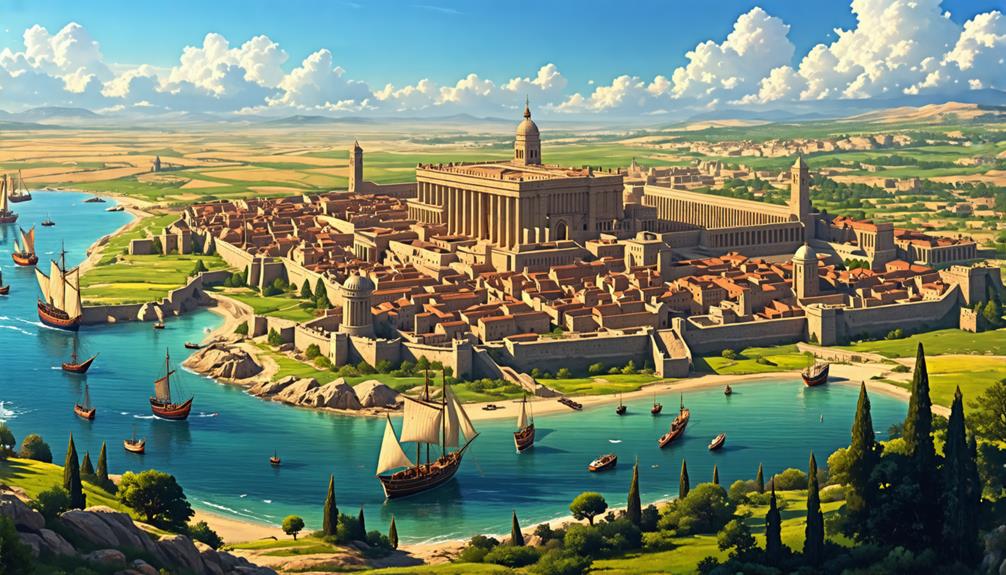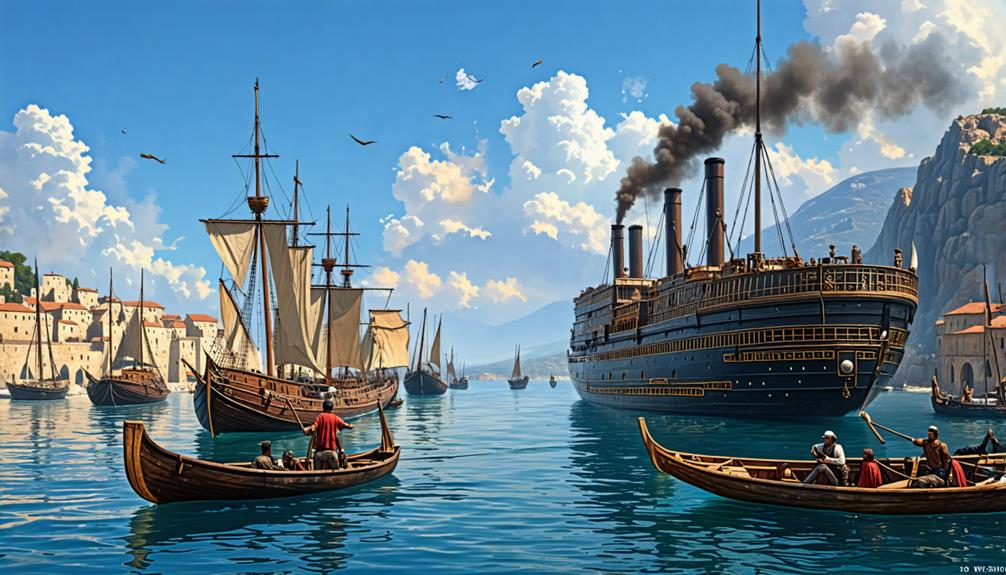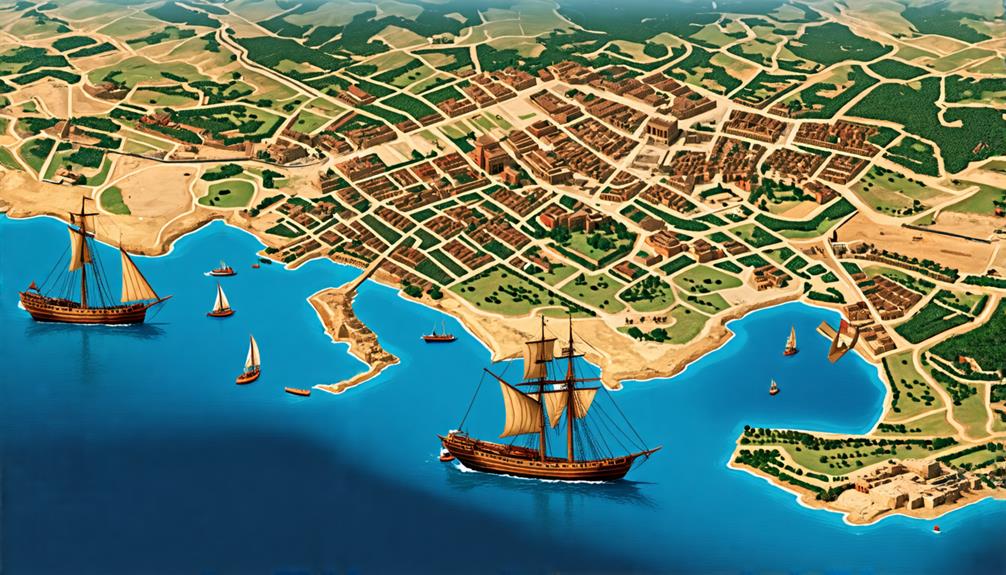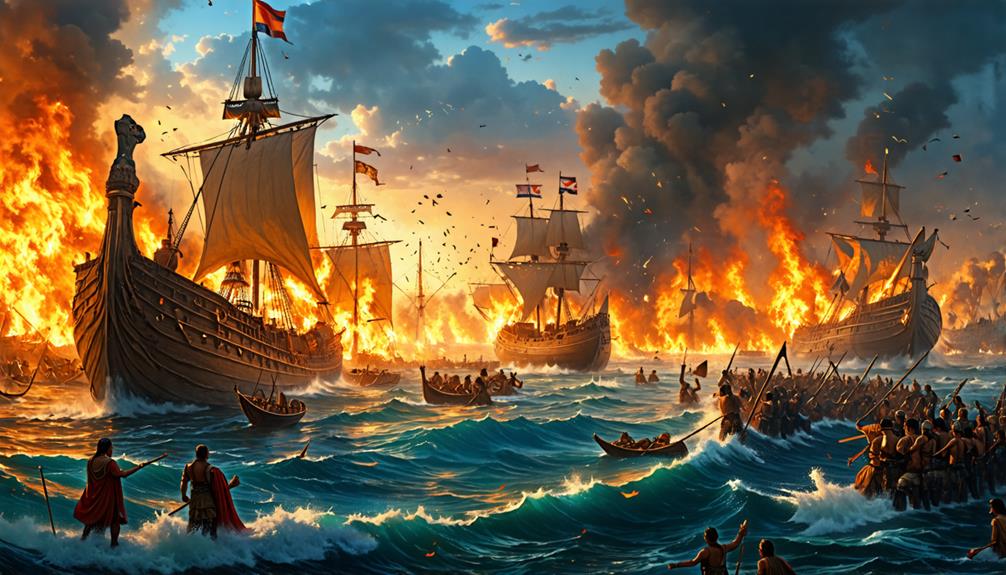What if the mighty Bronze Age empires had emerged victorious against the relentless onslaught of the Sea Peoples?
This alternate timeline explores a world where the Hittites, Egyptians, and Mycenaeans thrived in an era of unprecedented stability.
With the Sea Peoples decisively defeated, how would this pivotal moment reshape the course of history?
Let's delve into the captivating possibilities and examine the potential consequences of this altered path.
The Survival of Bronze Age Empires

If the Sea Peoples had been defeated, the great Bronze Age empires of the Mediterranean may have survived well into the Iron Age. The Hittites, Egyptians, and Mycenaeans could have continued dominating the region, with their complex trade networks and diplomatic relations remaining intact.
One theory is that this would have delayed the collapse of these civilizations, which marked the end of the Bronze Age, possibly by centuries.
However, it's important to note that the Persians did eventually conquer these empires in the 6th century BCE, so a similar scenario might've occurred at a later date.
Ultimately, the survival of the Bronze Age empires could have meant significant changes to the development of human civilization, but it's difficult to predict exactly how history would have unfolded.
It's up to the reader to consider the various possibilities and draw their own conclusions about the potential impact of this alternative historical scenario.
Altered Trade Routes and Alliances
The endurance of Bronze Age empires would've significantly changed ancient trade routes and alliances. One theory is that Egyptian, Hittite, and Mycenaean trade networks could have remained dominant for an extended period.
It's possible that strategic marriages and treaties between these powers would've been used to secure valuable resources and trade routes.
Some historians suggest that if the Bronze Age collapse hadn't occurred, these empires might've persisted for several more centuries. However, it's important to note that a similar scenario did unfold later in history, during the Iron Age, with the rise of the Persian Empire and its control over vast trade networks.
Ultimately, the specific outcomes of a prolonged Bronze Age remain open to interpretation and speculation.
Technological Stagnation or Advancement?

One theory is that a lack of conflict could have allowed the major Bronze Age empires to continue flourishing and pooling their knowledge, potentially accelerating technological progress.
However, it's also possible that without the disruption and cultural mixing brought about by the Sea Peoples' migrations, innovation may have stagnated as societies became more rigid and set in their ways.
While a similar invasion of the Eastern Mediterranean by the Dorians did occur centuries later, the geopolitical landscape had already significantly changed by that point.
Some imagine an alternate timeline where the great minds of the Egyptians, Hittites, Mycenaeans and others collaborated to make groundbreaking discoveries in fields like mathematics, astronomy and engineering.
Artisans, unhindered by societal collapse, could have refined metalworking techniques to produce higher quality weapons, tools and luxury goods.
Monumental architecture may have reached new heights, with empires channeling their prosperity into ever grander temples, palaces and cities.
Cultural Continuity and Divergence
One theory is that if the Sea Peoples had been victorious, the distinctive art, beliefs, and cultures of civilizations like Ancient Egypt and the Hittites may have been preserved and further developed rather than disrupted and transformed.
It's possible this could have meant major changes to the evolution of language, religion, architecture and other aspects of society in the Eastern Mediterranean and Near East.
Some scholars have suggested that Alexander the Great's conquest of the Persian Empire centuries later achieved a similar type of large-scale cultural upheaval and mixing of civilizations, although to a lesser extent than a Sea Peoples' victory may have caused in the Bronze Age.
Ultimately, the alternate history of a Sea Peoples' triumph is an intriguing scenario to ponder but impossible to know for certain.
Delayed Iron Age Transition

In an alternative history scenario, a victorious Sea Peoples could have significantly delayed the widespread adoption of iron in the Mediterranean region.
One theory is that this would have prolonged the Bronze Age, with societies struggling to recover lost knowledge and slower technological progress hindering economic and cultural growth.
It's possible that altered power dynamics would have emerged, as iron-wielding civilizations rose much later.
Interestingly, some historians propose that a similar disruption occurred centuries later during the Late Bronze Age Collapse, which also impacted the transition to the Iron Age in certain regions.
Geopolitical Ripple Effects
One theory is that if the Sea Peoples had been defeated, the major Bronze Age empires like the Egyptians, Hittites, Mycenaeans, Assyrians, and Babylonians would have remained in power for a longer period.
This could have meant that trade routes and diplomatic ties between these regions stayed intact, significantly altering the political and cultural development of the Mediterranean.
While this particular scenario didn't play out, some historians argue that a similar situation occurred centuries later with the Mongol invasions in the 13th century AD.
The Mongol Empire's rapid expansion and subsequent fragmentation had profound impacts on the geopolitical landscape of Eurasia, reshaping power dynamics and cultural exchange across the continent.
Conclusion
Imagine: if by chance the Sea Peoples hadn't prevailed, you'd be witnessing a vastly different world today. Those mighty Bronze Age empires could've thrived, their intricate trade routes crisscrossing the Mediterranean.
Who knows what wonders they might've achieved, united in purpose? But alas, fate had other plans. The Iron Age dawned, and with it, a new era of human history.
One can only ponder the lost possibilities of that fateful turning point.

Leave a Reply